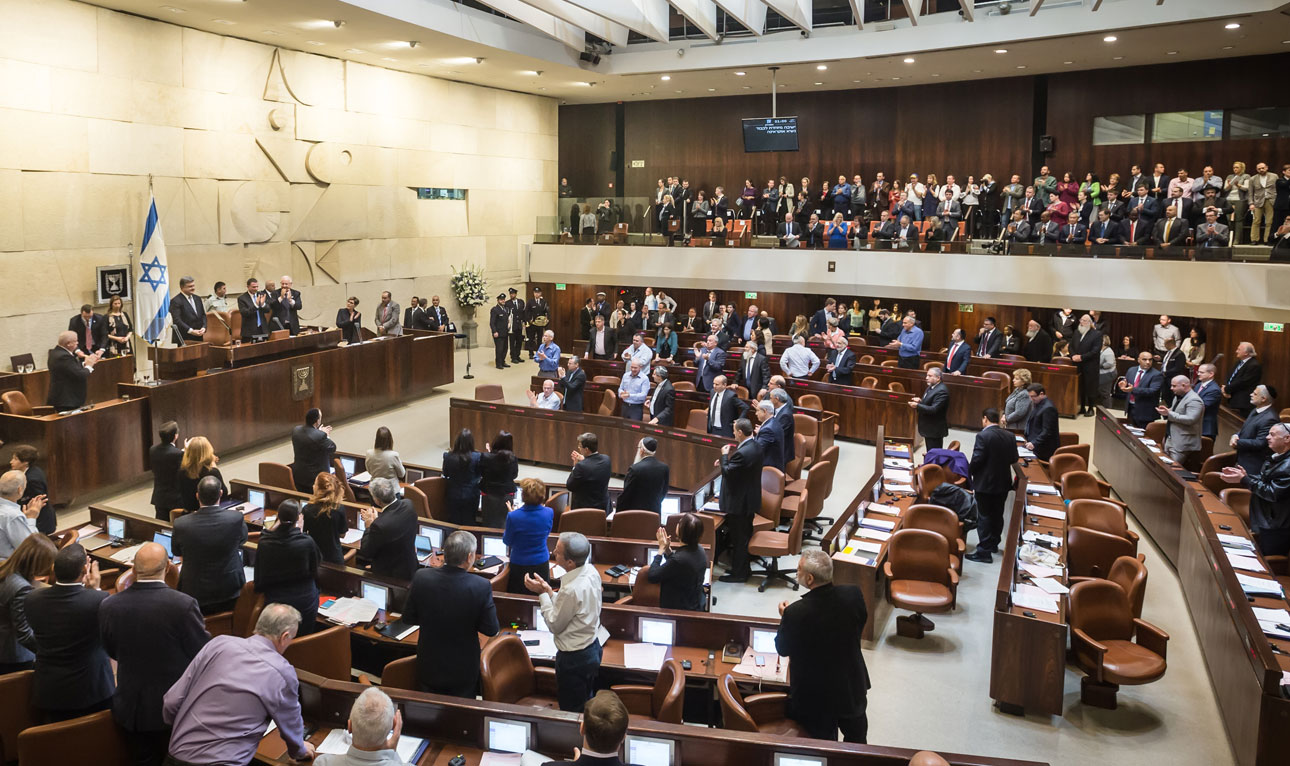Democracy: Rule of the People?
The recent wave of populism forces us to sharpen our understanding of the literal meaning of 'democracy' and 'the rule of the people' as well as the accepted definition of liberal democracy.

Knesset | Flash 90
One of the positive side-effects of the wave of populism sweeping the political systems of various Western countries, including Israel, is that it forces us to sharpen our understanding of the linkage between the literal meaning of the word “democracy” — “rule of the people”—and the broadly-accepted configuration of liberal democracy, which is based on constitutional checks and balances and on the wielding of governmental power by both elected representatives and non-elected public officials. Populists regard democracy as a framework for establishing and executing the will of the people, by means of elections that reflect the majority opinion, and thus they almost inevitably view any position that doesn’t coincide with the preferences of the majority, as illegitimate and undemocratic. Although the populist approach might appear to be super-democratic, this week, in which we are marking the International Day of Democracy (September 15), it is important to point out that it is in fact a highly problematic approach, to which most (if not all) Western countries are opposed.
First, any system that is entirely based on the preferences of the majority runs the risk of leading to a tyranny of the majority or dictatorship of the masses, and to unjust treatment of minority groups and infringement of their rights and freedoms. While formally, such a system might still be considered democratic, it is an unfair form of democracy that cannot be sustained for long as the basis for shared and harmonious existence between majority and minority. This is why democratic countries adopt constitutions and other structural means, such as judicial review, having two houses of representatives or a presidential veto, which are designed to restrict the power of the majority to mistreat the minority.
Second, any system based on granting unrestricted power to elected representatives invites abuse, in that elected representatives are liable to further their own interests rather than advancing the interests of their voters while claiming that they are merely carrying out the “will of the electorate” (which they feel free to interpret as they see fit). In order to protect the public interest, democratic countries establish independent supervisory and review bodies such as courts, to oversee how elected officials exercise their authority. It is important to note that unlike the general electorate, which follows political developments only sporadically and with only a limited understanding of complex policy questions, independent supervisory bodies typically possess the expertise and the resources necessary to effectively oversee elected officials and prevent abuses of power.
Third, there are real concerns about the ways in which populist politicians attempt to exploit the structural flaws in the decision-making processes of the average citizen, who lack the necessary professional training to relate to many of the issues on the public agenda. Such politicians tend to present simplistic solutions to complex problems, such as poverty or security threats; they promote short-term solutions to long-term problems; and they base their proposals on partial information, intuition, or emotion, rather than on rigorous evidence-based analysis. This is precisely the reason why almost no democratic country in the world operates a system of direct democracy, in which questions of government policy are presented for the public to decide upon on an intensive basis. Instead, democracies rely on decision-making by elected officials who dedicate their time and energy to running affairs of state. Liberal democracies go even further, and include non-elected experts in the decision-making process, to ensure that it yields optimal results in the long term as well as the short term.
Finally, the pluralism of the “marketplace of ideas” and the ability to both persuade others and be persuaded — essential characteristics of democracy — are threatened by the populist approach, which sets out to delegitimize views that differ from those of the majority. In effect, attacking opposition groups or civil society organizations which express minority views is not in any way an expression of the rule of the people; rather, it is a way of denying the people access to information that would help them shape their opinions on where the country is headed.
Thus, taking a complex and sober view of the realities of democratic governance leads to the following counter-intuitive conclusion: In order to protect the democratic ideal of the rule of the people as a guiding value for a legitimate and effective political system, there need to be limits on the power of the majority to make populistic and oppressive political decisions, by means of institutional checks and balances and by the distribution of power between elected representatives and non-elected public officials. When it comes to the power of the majority, the famous saying of the 19th-century British politician Lord, Acton still holds true — power corrupts, and absolute power corrupts absolutely.
The article was published in the Times of Israel.
